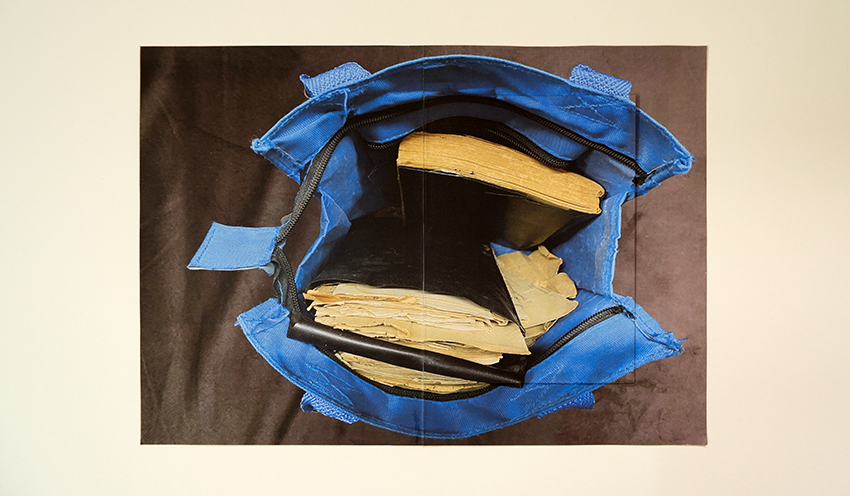Priyanka Chhabra
Project Period: One year
This Foundation Project implemented by IFA under Productions, will create an artist book that will reflect on the nature and relationship of personal archives to history. Priyanka Chhabra is the Coordinator for this project.
Delhi-based filmmaker Priyanka Chhabra studied Film and Video Communication Design at the National Institute of Design in Ahmedabad. She has been the recipient of grants from Gallery Experimenter and the Public Service Broadcasting Trust. She has received the TOTO Award for Short Film and was part of the Alchemy Film and Moving Image Residency in Scotland. Her filmography includes In the Forest One Thing Looks Like The Other, A Migrant Walk, Pichla Varka, Ye Lo Bayaan Humaare, And We Were There 1967-77 and Iqraar-naama. Her films have been screened at prestigious festivals across the world. Given her experience she is best placed to be the Coordinator of this Foundation Project of IFA.
In 2019, Priyanka received a grant from IFA to make the film Iqraar-naama. This is the story of the 'refugee', 'migrant', 'displaced person' told through a collection of documents from the personal archive of (Late) Mr Charandas Bangia, a refugee of the Partition from Lyallpur, of undivided India that fell in Pakistan who finally settled in Amritsar, India. The film decentres historical narratives from the state to the citizen, and from state archives to personal archives, looking at history from the perspective of those who experience it. The documents preserved carefully for over 90 years include the Land Deed of the Bangia house in Jaranwala Mandi (1932), Matriculation Certificate (1944), Library Card at Government College Lyallpur (1947), Refugee Volunteer Certificate (1948), Refugee Compensation Forms (1951), and Rent receipts from the Custodian of Evacuee Property (1954 onwards).
The current project is an extension of Iqraar-naama. While the film was able to develop an argument around the idea of personal archives and their relationship to history writing, the limitation of the film as a form also constrained Priyanka from including the exploration of the full range and diversity of documents from Mr Bangia's archive. In this project through the production of an artist book, these documents will come together creating a kind of a physical archive. The book will also attempt to include all the historical documents and allow viewers and readers to read/browse through them at their own pace - pausing, zooming in, dividing and managing their attention as they please. It is a way to give the documents the dignity of a personal archive and bringing it into the fold of the ‘historical’ narrative of the Partition of Punjab. Another purpose of the book is also to capture reflections, inflections, propositions and deliberations rethinking questions around how history is written and read.
Titled My Voice Is As Brittle As The Paper You Write On, the artist book is imagined as a conversation between four imagined characters at the time of the Partition of Punjab in 1947. It will be designed like an official file in order to evoke the non-linear accidents of ‘history’, allowing the risk of shifting timelines and abrupt appearances and disappearances every time the reader engages with the book. Since the pages will be filed and not bound, it will take the appearance of an official record, an index and a reference to this particular time in history.
The book will play on the nature of archives (personal and official), where the order of pages can change while filing/un-filing the book by the reader, thereby marking the idea of agency, non-linear narratives and the likelihood of missing scenarios/chapters in ‘history’. In doing so, the book seeks to expand and re-imagine the processes of knowledge production.
The text of the book will be in the form of dialogues as in a theatre play. Priyanka will write this text in collaboration with philosopher and curator Srajana Kaikini. Parts of the text will also be drawn from transcripts of interviews with Mr Bangia and from the historical documents. Accompanying the text, there will also be drawings and photographs. Priyanka will collaborate with graphic/UX designer Shiraz Iqbal for the design, structure and layout of the pages.
The outcomes from this project will be the artist book and an essay on the relationship of personal archives to history writing and making. The Project Coordinator's deliverables to IFA along with the final report will be the artist book, the essay, copies of drawings, text and photographs used in the book.
This project suitably addresses the framework of IFA’s Arts Practice programme in that it provides a new approach to writing and reading the history of the Partition. It also opens Priyanka's own practice as a filmmaker to newer ways of artistic expression.
IFA will ensure that the implementation of this project happens in a timely manner and funds expended are accounted for. IFA will also review the progress of the project at midterm and document it through an Implementation Memorandum. After the project is finished and all deliverables are submitted, IFA will put together a Final Evaluation to share with Trustees.
This project is made possible with support from Sony Pictures Entertainment Fund.




